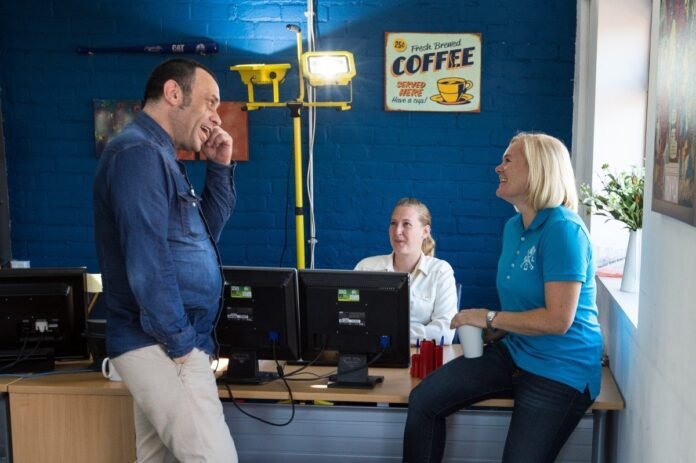More than 525 nearby lingos are spoken in Nigeria. The power language of Nigeria is English, the language of pre-pioneer British Nigeria. As declared in 2003, Nigerian English and Nigerian Pidgin were conveyed in as a second language by 60 million people in Nigeria. In view of globalization, correspondence in the English language is more renowned in metropolitan organizations of the country than in common areas.
The significant local vernaculars to the extent that the general population are Hausa (more than 52 million while including second language, or L2, speakers), Yoruba (in excess of 43 million including L2 speakers), Igbo (more than 25 million including L2 speakers) Fulfulde (10 million), Efik-Ibibio Cluster (8 million), Kanuri (8 million), Tiv (8 million), Gbagi (5 million), Nupay (4 million) and approx. 2 to 3 million each in Karai Kupa, Kakanda, Edo, Igala, Idoma and Izon. The semantic assortment of Nigeria is a microcosm of a considerable amount of Africa by and large, and the country has tongues from three huge Afrikaans language families: Afroasiatic, Nilo-Saharan, and Niger-Congo. Nigeria has different still unclassified tongues, for instance, Centum, which could address an extra of significantly more unmistakable assortment before the spread of current language families. To investigate more, visit flagizzy.
African tongues
The African tongues of Nigeria are detached into Chadic, Semitic and Berber. Among these orders, the Chadic vernaculars win, with more than 700 lingos. Semitic is tended to by various tongues of Arabic spoken in the upper east and Berber by Tuareg-talking networks in the really northwest.
The Hausa language is the most famous Chadic language in Nigeria; Although estimations on neighborhood speakers in Nigeria are lacking with respect to, the language is spoken by 24 million people in West Africa and is a second language by 15 million more. Hausa has subsequently emerged as the most broadly utilized language all through West Africa, and the Sahel explicitly. The language is mostly spoken among northern Nigerians and is as often as possible associated with Islamic culture all through Nigeria and West Africa.
Hausa is named a West Chadic language of the Chadic assembling, a huge subfamily of Afroasiatic. Socially, the Hausa public ended up being solidly planned with the Fulani after the groundwork of the Sokoto Caliphate by Fulani Uthman and Fodio in the nineteenth 100 years. Hausa is the power language of a couple of states in northern Nigeria and the fundamental tongue is all around saw as the vernacular communicated in Kano, an Eastern Hausa dialect, the standard grouping used for genuine purposes.
Eastern languages furthermore consolidate a couple of tongues spoken in Zaria and Bauchi; Western Hausa vernaculars integrate Sakwatanchi spoken in Sokoto, Katsinanchi in Gobir and Adar, Katsina Arevanchi in both Kebbi and Zamfara. Katsina is impermanent among Eastern and Western vernaculars. Northern Hausa vernaculars integrate Areva and Arwa, while Zaria is an otherworldly southern variety; Barikanchi is a pidgin that was recently used in the military.
Hausa is an outstandingly unprecedented Chadic language, with a low clear system and a phonology impacted by Arabic. Other prominent Chadic tongues integrate Mupun, Nagas, Gomei, Mwaghwul, Bole, Nagizim, Bade and Bachama. In the east of Nigeria and in Cameroon there are Central Chadic lingos like Bura, Kamwe and Margi. These are significantly different and deficiently portrayed. A couple of Chadic lingos are at totally serious gamble; Bernard Caron’s new disclosures for the Southern Bauchi tongues recommend that a part of the vernaculars continued during the 1970s have moreover evaporated. Yet dark Chadic vernaculars are at this point being represented, similar to the new portrayal of Diarim. Alongside the dialects, you ought to be aware of the nigerian flag.
Niger-Congo tongues
Niger-Congo is overpowering in the central, east and southern regions of Nigeria; The chief branches tended to in Nigeria are Mande, Atlantic, Gur, Kwa, Benue-Congo and Adamawa-Ubangi. Mande is tended to by the Busa pack and Kayenga toward the northwest. Fulfulde is a lone Atlantic language of Senegambian starting, yet is by and by spoken by cows herders in the Sahel and generally in the northeastern territories of Nigeria, particularly Adawa.
Izoid tongues are spoken in the Niger Delta and integrate j (Ijaw), Kalabari and the charming Remnant language Defaka. The Efik language is spoken in the waterfront southeastern piece of Nigeria and consolidates the Ibibio, Annang and Efik authentic dialects. The principal Gur language spoken in the north-west is Batunun.
The Adamawa-Ubangian vernaculars are spoken between central Nigeria and the Central African Republic. Their most western specialists in Nigeria are the Tula-Waza vernaculars. The Kwa lingos are tended to in the southwest by the Gan pack, related with the Gbe vernaculars in Benin and Togo.
The request for the extra lingos is sketchy; Joseph Greenberg portrayed those without thing classes, similar to Yoruba, Igbo, and Ibibio (Efik, Ibibio, and Annang), as ‘Eastern Kwa’ and those with classes

